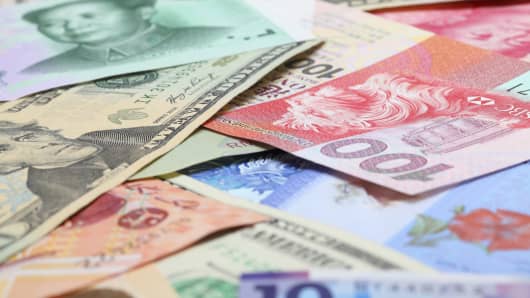As central banks in emerging markets struggle to arrest the rapid decline in their currencies, they may be forced to liquidate holdings of U.S. Treasurys - a risk, analysts say, that could catch the Federal Reserve off guard.
"I haven't seen evidence of it yet but selling U.S. Treasuries would be a very logical way for emerging market nations to shore up their currencies. They are fighting an uphill battle here and any step could help," Kathy Lien, managing director of currency strategy at BK Asset Management told CNBC on Friday.
(Read more: Emerging markets: dissecting the good from bad)
"I don't think the Fed [Federal Reserve] is overly concerned about it, but they should be," she said.
Rapid selling of U.S. government bonds by foreigners would put upward pressure on yields, sending borrowing costs higher. The yield on benchmark 10-year bonds this week rose to 2.93 percent, their highest in two years.
Emerging market central banks are major foreign holders of U.S. government securities, with China, Brazil and Taiwan and Russia among the largest, according to data from the U.S. Treasury.





